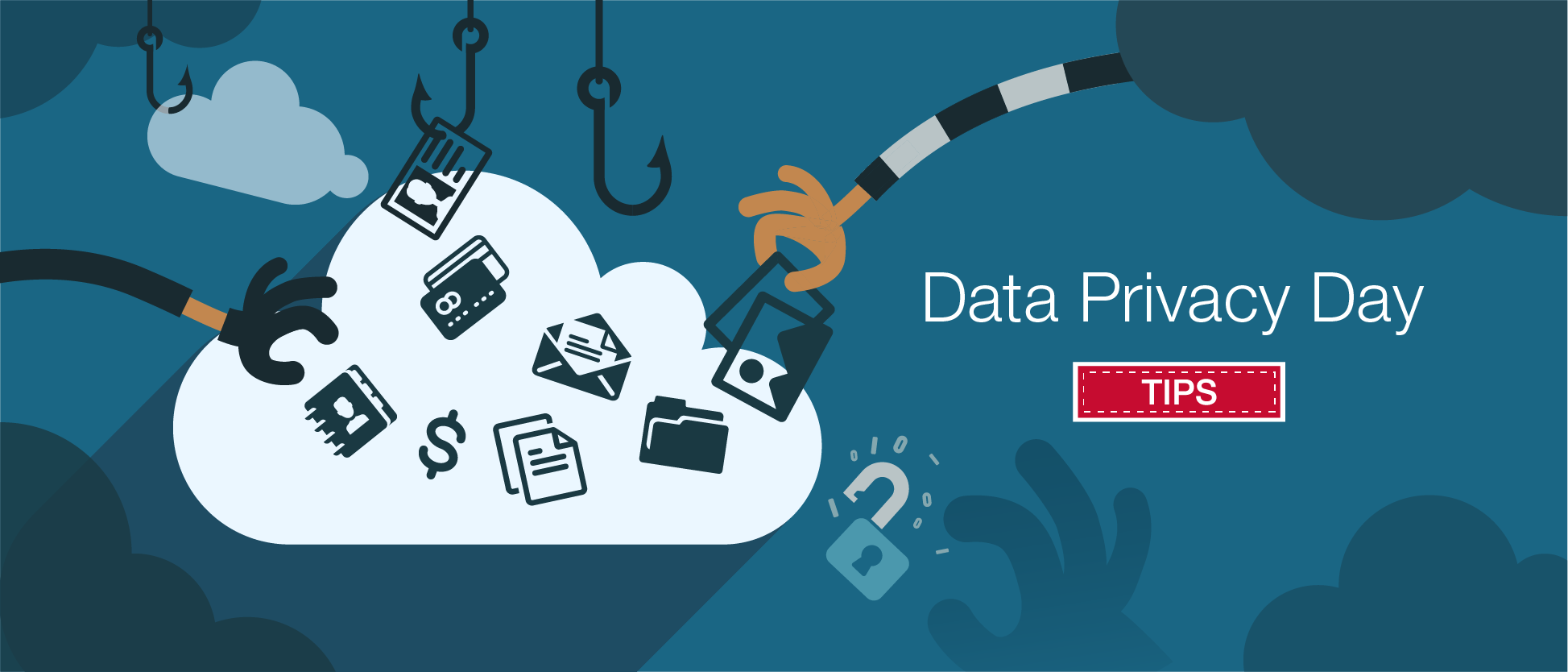Why You Should Celebrate the Data Privacy Day
January 28, 2019

It's Data Privacy Day! Do you treat your data privacy as you treat your home? Do you securely lock the doors to keep strangers out, hide the keys in a safe and secure place and keep your eyes peeled for prying eyes? Well, if you don’t, here are some facts to ponder:
- We now live in the digital era where our personal data is constantly collected, used, and shared across multiple devices and networks.
- Phishing attacks are responsible for losses worth billions of dollars for many companies and individuals every year.
- Leaks and breaches happen and, quite often, malefactors collect and create databases with logins and passwords gleaned from leaked information.
- Social Media (Facebook, Twitter, LinkedIn, Instagram etc.) remains the leader in terms of the number of records breached (56 percent) last year, reflecting the high-profile customer data compromises at Facebook and Twitter, involving 2.2 billion and 336 million respectively.
- Advertisers are data hunters, so they might as well use any personal data you unknowingly shared on social media to construct sophisticated profiles of your buying, shopping or browsing habits.
- More than half the world population (3.8 billion people) now uses a smartphone, and about half of all mobile connections around the world are now broadband. The proliferation of mobile devices creates new entry points for exploiting personal confidential information.
- Internet of Things (IoT) security remains is a major concern - by 2020 there will be roughly 200 billion connected devices, aggravating existing privacy challenges.
- Gemalto's Breach Level Index reveals that 4.5 billion data records were compromised worldwide in the first half of 2018, an increase of 133 percent compared to the same period in 2017.
- Cybercrime is expected to cost businesses over $2 trillion total in 2019 as more business infrastructure gets connected, according to Juniper Research data.
- More than 40% of reported security breaches are caused by employee negligence, according to 2018 research by Shred-it.
The above are some reasons why industry, government and nonprofits joined forces every year since 2008 to recognize January 28 as Data Privacy Day and to create awareness about the importance of privacy and protecting personal information. On this Data Privacy Day we have some valuable experience to share. This helps you protect your privacy and prevent disclosure of sensitive information:

Share with care on the Cloud
Before submitting data about yourself or others, think about how it might be affected by a possible data breach. Follow reasonable security measures to protect individuals’ personal information from unauthorized access.

Lock down your login
Use a unique password for each account. For sensitive resources, turn on the strongest authentication tools available, apply security keys or unique one-time codes through an app on your mobile device. Remember that your usernames and passwords are not always enough to protect key accounts like email, banking and social media.

Keep your devices clean
Update your security software, web browser and operating system to have the best defense against viruses, malware and other online threats. Do not open any email attachments and links if sender is unknown or package is suspicious.

Don't use work email for personal reasons
Don't respond to requests for personal or sensitive information via your corporate email. Respect and protect the personal data of colleagues and customers by providing work contact information to online services and online stores only when there is a business need.

Prevent phishing attacks on your personal or financial data
To guard against Phishing attacks, don't post personal data, like your birthday, vacation plans, or your address or phone number, publicly on social media. Watch out for any URL redirects and spell-check email links before you click or enter sensitive information.

Secure your digital life with a password manager
Having both strong and unique passwords becomes both simple and effective with password managers. Use multi-factor authentication to control access to sensitive systems and data. That should prevent hackers from gaining access into your account, even if they managed to obtain your login and password.
 Security and more security!
Security and more security!
Every device should be secured by a password or strong authentication ‒ finger swipe, facial recognition etc. These security measures limit access to authorized users only and protect your information if devices are lost or stolen.

Secure your Internet traffic
Make sure that HTTPS is used (check the icon "Connected secure" next to the website address in browser) or corporate VPN: thereby, all the traffic that leaves your device will be encrypted.
 Avoid privacy risks on social media
Avoid privacy risks on social media
Be very careful about what you post online, else, you will end up giving the would-be burglars, stalkers, cyberbullies and identity thieves the information they require to cause harm. Always take advantage of the enhanced privacy options which are offered by social media sites, e.g. 2FA enablement, blocking the messages from strangers.
